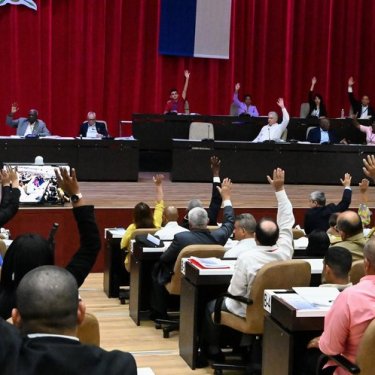New digital law tightens clampdown on press freedom in Cuba

Reporters Without Borders (RSF) condemns the Cuban parliament’s adoption of the country’s first law regulating online communication, which enshrines its prohibition of independent media and is designed to eliminate the small space for freedom of expression that had developed online.
The law regulating online communication and information, called the “Social Communication Law,” was adopted by a show of hands at a plenary meeting of Cuba’s national assembly on 26 May. Article 28 of the new law says media are “the socialist property of the entire people or of political, social and mass organisations, and cannot be the subject of any other kind of property.”
“This is a terrible day for journalism in Cuba. In the absence of regulation, the expansion of Internet access on the island in recent years had allowed independent media to develop online. By enshrining the ban on any media organisation outside the framework of the state and Communist Party control, the Cuban parliament has crushed the fragile space for freedom that had emerged, and has tightened the clampdown on press freedom in Cuba. We are concerned for the safety of journalists working for these independent media who are still in the country and we call for this repressive law’s immediate repeal.”
Cuba’s 1959 constitution already bans any privately-owned media initiative. But the first independent journalists’ organisations nonetheless began emerging at the end of the 1980s. In the context of a legal online void, mobile Internet’s arrival on the island in 2018 and the authorisation of domestic Wi-Fi networks in 2019 encouraged the rise of a new generation of independent news sites such as 14ymedio, el Toque, El Estornudo and Periodismo de barrio.
These media outlets were already targeted by restrictions in the new penal code that took effect in December 2022. It penalises organisations receiving foreign funding, “as is the case with independent media,” said Raudiel Pena Barros, a lawyer with the Havana-based Cuban Institution for Freedom of Expression and Press Freedom (ICLEP). “This new law, which grants them no legal status, tightens the vice on them,” he said.
In an address to the national assembly, Cuban President Miguel Díaz-Canel said the new law was needed to prevent “subversion” and described Cuba’s independent media as “mercenaries” in the pay of foreign interests.
“This is how independent media have always been treated,” said José Luis Gallego, a Cuba journalist and communication researcher, who estimates that there are currently around 60 independent media outlets in Cuba. Harassment by the political police has already prompted a big exodus of journalists in recent years, one that is likely to increase as a result of these new measures.
Cuba has for years had Latin America’s lowest ranking in RSF’s World Press Freedom Index and is ranked 172nd out of 180 countries in the 2023 Index.
